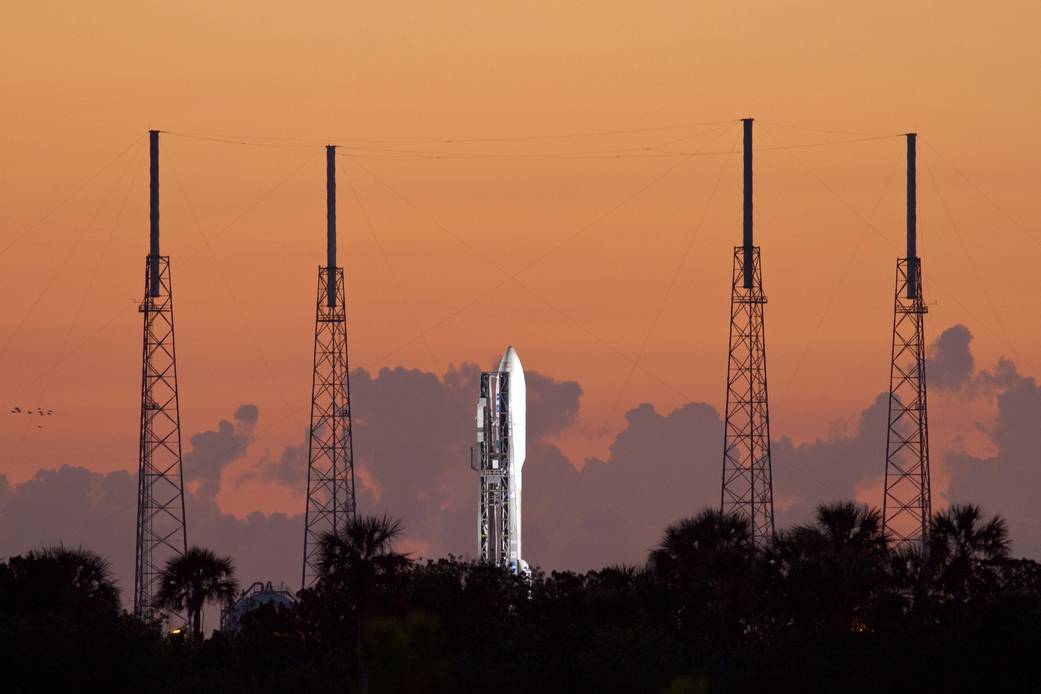How NASA restored my faith in humanity
Juno's accomplishments this week offer the world a glimmer of hope in dark times


A free daily email with the biggest news stories of the day – and the best features from TheWeek.com
You are now subscribed
Your newsletter sign-up was successful
You're entitled to feel some despair over the state of our world. I sure do, even after a lifetime in the news business. In recent weeks, there's been an avalanche of evidence of our species' bottomless capacity for stupidity, savagery, and tribal hatred. An alarming number of our existing and would-be leaders have shown themselves to be clueless, corrupt, self-serving scoundrels and buffoons. We teeter on the edge of multiple disasters. But, my friends, there's always hope. We've also just gotten a reminder that, at our best, human beings are capable of extraordinary intelligence, teamwork, and vision.
This week, NASA's Juno spacecraft entered into orbit around Jupiter, after a 1.7 billion–mile journey. Juno arrived just one second off its scheduled arrival time after five years in space, traveling at 165,000 miles per hour — the fastest human-built object ever. Where in everyday life, or in government, do we see such sheer competence? In modern science, miracles are routine. Physicists have hurled beams of protons at each other with such primordial force that they revealed the elusive Higgs boson that serves as glue for all matter. Astrophysicists have detected gravitational waves produced by the collision of two black holes more than a billion light-years away, by creating antennae of such exquisite sensitivity they register infinitesimal ripples in space-time. Molecular biologists are figuring out how to re-engineer genes. Computer scientists keep shrinking the size of chips and doubling our devices' computing power. None of this is to say that scientists are gods, or that they are immune to the shortsightedness and egotism that plagues our species. Underneath their hyperdeveloped cerebral cortexes, even the most brilliant people have a lizard brain, pulsing with primitive impulses. But they provide proof that not all humans are imbeciles, and that's consolation enough.
A free daily email with the biggest news stories of the day – and the best features from TheWeek.com
The Week
Escape your echo chamber. Get the facts behind the news, plus analysis from multiple perspectives.

Sign up for The Week's Free Newsletters
From our morning news briefing to a weekly Good News Newsletter, get the best of The Week delivered directly to your inbox.
From our morning news briefing to a weekly Good News Newsletter, get the best of The Week delivered directly to your inbox.
William Falk is editor-in-chief of The Week, and has held that role since the magazine's first issue in 2001. He has previously been a reporter, columnist, and editor at the Gannett Westchester Newspapers and at Newsday, where he was part of two reporting teams that won Pulitzer Prizes.
-
 The ‘ravenous’ demand for Cornish minerals
The ‘ravenous’ demand for Cornish mineralsUnder the Radar Growing need for critical minerals to power tech has intensified ‘appetite’ for lithium, which could be a ‘huge boon’ for local economy
-
 Why are election experts taking Trump’s midterm threats seriously?
Why are election experts taking Trump’s midterm threats seriously?IN THE SPOTLIGHT As the president muses about polling place deployments and a centralized electoral system aimed at one-party control, lawmakers are taking this administration at its word
-
 ‘Restaurateurs have become millionaires’
‘Restaurateurs have become millionaires’Instant Opinion Opinion, comment and editorials of the day
